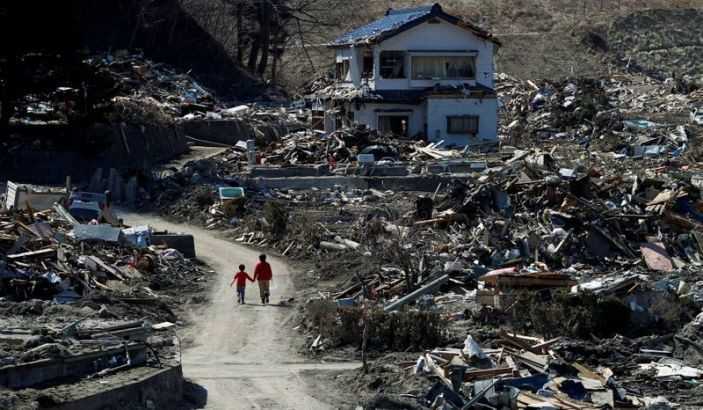Japan's 'solidarity' quake tax may be model to foot pandemic bill
12 March, 2021

Japan is spending money on the huge cost of rebuilding areas hit by the March 2011 earthquake and tsunami with a special "solidarity" tax that could turn into a model to shoulder the much bigger spending had a need to combat the coronavirus pandemic.
Households are bearing the brunt of the bill, paying an extra 2.1% in tax for 25 years through 2037. For those with total annual taxable income of 10 million yen, that compatible an extra 37,000 yen a year.
While companies were likely to pay a supplementary 10% tax for 3 years, these were off the hook after two years, which critics say was due partly to pressure from the powerful Keidanren business lobby amid global competition to lower corporate tax rates.
For politicians, it's a model that works.
Unlike Japan's unpopular sales tax that was doubled in two stages to 10% from 2014 to 2019, households won't feel pain every time they shop. Branding it as a "solidarity" special tax helps convince voters the levy is for a collective good.
Ruling party lawmakers say tax hikes would be a last resort in footing the price tag on combating COVID-19 which has so far topped 70 trillion yen - a lot more than double the spending for post-quake and tsunami reconstruction.
But Finance Minister Taro Aso flagged the opportunity of another special tax after the economy emerges from the pandemic's hit.
"Whenever a crisis hit, we took bold fiscal steps and the current generation strived to talk about the responsibility," Aso told the lower house financial committee last month, suggesting debate over a tax hike can't be avoided in the long run.
Japan spent 31.3 trillion yen on reconstruction from the earthquake and tsunami - roughly the size of Egypt's economy - with another 1.6 trillion yen earmarked for the coming five years.
Revenues from the special tax payed for about 40% of the price, around four-fifths of which was collected from households.
The excess tax of 2.1% was imposed on the quantity of tax paid by individuals with the tax rates running as high as 45%, compared to the effective company tax rate of around 30%.
Some lawmakers, such as for example members of the Japanese Communist Party, criticize the special tax as imposing an excessive amount of a burden on households. But their voices are few.
The biggest opposition party has kept mum as the tax was rolled out under a government led by a few of its current members. The ruling Liberal Democratic Party, known as pro-business, sees no merit in rocking the boat.
With Japan saddled with public debt 2.5 times how big is its economy, talk of a "post-pandemic solidarity tax" cannot be avoided, said Masahiro Kawai, a former finance ministry official and University of Tokyo professor who's now heading the Economic Research Institute for Northeast Asia.
"Such a tax would gain people's understanding if indeed they perceive it as necessary to protect their livelihood and human capital," he said.
Others are skeptical. The pandemic has upended lives for nearly the entire population, unlike March 2011, where people moving into areas unaffected could rally to save lots of those that faced devastation.
"It may be difficult to ask households to evenly share the burden this time, given a widening disparity between haves and have-nots since the coronavirus outbreak," said Hosei University Professor Kazumasa Oguro.
Source: japantoday.com
